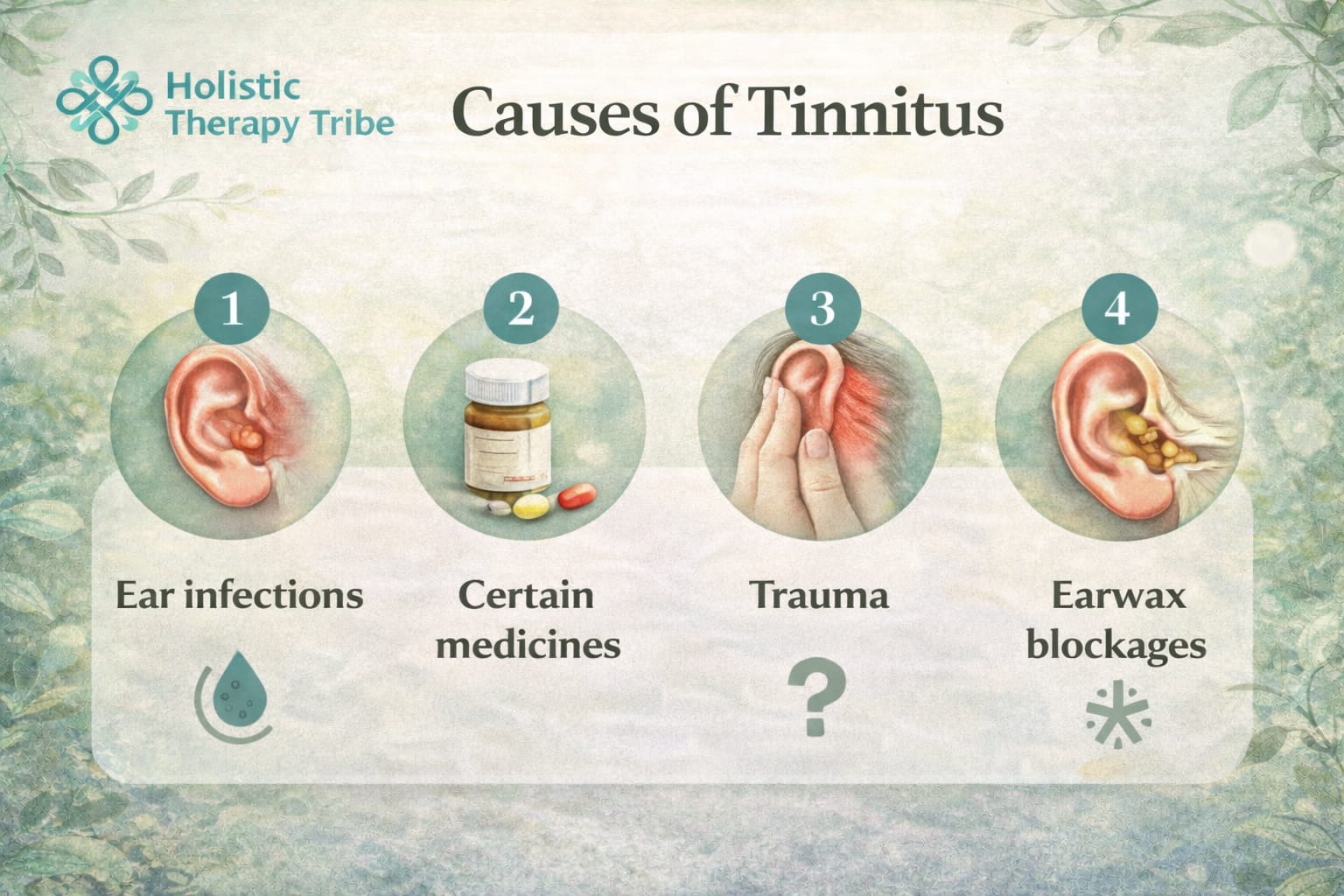
Have you ever experienced a buzzing sound in your ears?
This condition is known as tinnitus, which is associated with neurological disorders, hearing loss, etc. Can this relentless noise be a warning sign of something more serious?
Lyme disease is caused by Borrelia burgdorferi, which presents various clinical symptoms, such as tenderness in the joints, skin rashes, dizziness, etc. In some individuals, tinnitus can also appear in patients with Lyme disease. In this blog, we will explore how tinnitus and Lyme disease are correlated.
Can Lyme disease affect the auditory system?
According to a study, around 76.5% of the patients with Lyme disease had tinnitus, and 16.7% of the patients had unilateral hearing loss. When Lyme disease is left untreated, the auditory system can be affected. As a result of the inflammation, an inflammatory response occurs in the tissues of the inner ear that damages hair cells and nerve fibers.
Neurosensory hearing loss is a chronic complication that occurs when Lyme disease spreads to nerves in the ear. Due to the infection, an apoptotic reaction can occur in the cochlea. There is a high chance of misdiagnosis when Lyme disease patients present with auditory complaints. Hence, unexplained auditory symptoms require proper diagnosis and intervention.
What is tinnitus?
Tinnitus can be defined as a ringing/humming sound in the ears. People with tinnitus find it difficult to sleep or concentrate properly. Tinnitus cannot be considered a disease, but it is associated with ear injuries or hearing loss. The common causes of tinnitus include:
- Ear infections
- Certain medicines like antibiotics, antidepressants, etc
- Trauma
- Earwax blockages

If left untreated, tinnitus can lead to several complications, such as clinical depression, anxiety, trouble concentrating, and communicating.
How can Lyme disease cause tinnitus?
Lyme disease is caused by the bacteria, “Borrelia burgdorferi”, through a tick bite. When the bacteria reach the body, both the central and peripheral nervous systems will be affected. The bacterial infection can cause the inflammation of the vestibulocochlear nerve, which is the 8th cranial nerve.
Inflammation of the vestibulocochlear nerve can lead to abnormal sounds, such as tinnitus. The bacteria can also damage the inner ear, which worsens the clinical symptoms. In some individuals, tinnitus may be the early symptom that makes the diagnosis challenging.
There is an increased chance of misdiagnosis, as tinnitus is associated with other neurological disorders. Diagnostic errors can often lead to inappropriate treatment plans that worsen the health of the individual. Hence, it is important to detect the infection at the early stage and start antibiotic treatment.
Case studies
A 23-year-old woman had clinical symptoms, such as tinnitus, headache, etc., for a period of two months. The patient also suffered from bilateral hearing loss, without any other symptoms. Western blot analysis was performed that confirmed the presence of infection. The patient received antibiotic treatment, but there was no recovery of hearing.
What is the difference between traditional tinnitus therapies and Lyme-specific approaches?
| Traditional tinnitus therapies | Lyme-specific approaches |
|---|---|
| Sound therapy, employing hearing aids, smartphone sound generators, and masking devices are used. | When tinnitus is associated with Lyme disease, antibiotic treatment can be initiated. |
| Cognitive behavioral therapy can be used to reduce the stress levels and to improve coping mechanisms. | Anti-inflammatory agents can be used to reduce neural inflammation. |
| Certain medicines, like antidepressants or anti-anxiety drugs can be used to manage stress and ensure proper sleep. | Proper care has to be provided to the patients, along with dietary modifications and counseling. |
How to diagnose Lyme disease in patients affected with tinnitus?
The ringing or buzzing sound in the ears is likely to be quite a common symptom. Depending on the cause, the range may vary, as it may occur either due to the loss of hearing or due to an infection.
Tinnitus can be one of the earliest or most ignored clinical signs of Lyme disease, especially when the illness affects the nervous system.
The diagnostic process commences with a thorough clinical history. The patients should be enquired whether or not they have had any recent exposure to ticks, especially to wooded or grassy environments where blacklegged ticks are prevalent.
A history of a tick bite or a bull’s eye rash (erythema migrans) is most suggestive of Lyme disease. Clinical symptoms, such as joint pain, headaches, facial palsy, neck stiffness, or cognitive failures, along with tinnitus, can indicate Lyme disease.
Neurological and otologic examinations must be conducted. Lyme disease may be transmitted to cranial nerves, particularly the vestibulocochlear nerve (cranial nerve VIII) that regulates hearing and balance. It may also indicate the involvement of this nerve by the symptoms, including dizziness, vertigo, or hearing loss accompanied by tinnitus.
The confirmation must be made under laboratory conditions. According to the Centers for Disease Control and Prevention, 2-level serologic testing must be performed in Lyme disease:
- The first step is to perform an enzyme immunoassay (EIA) or an immunofluorescence assay (IFA).
- Western blot test is indicated to confirm in case of positive or equivocal results
Lyme disease in tinnitus patients should be diagnosed in a multidisciplinary approach, which involves integrating clinical experience and adequate testing. Tinnitus can be reversed or minimized with early detection and the beginning of treatment, particularly when caused by neuroinflammation due to Lyme disease.
Conclusion
- There is a strong correlation between Lyme disease and tinnitus, which is important in diagnosis and planning effective treatment.
- The key to an early identification of the disease is a detailed clinical examination involving a history of tick exposure, a neurological examination, and serology.
- After confirming Lyme disease, specific antibiotic treatment can improve the clinical symptoms and lead to a better quality of life.
References
- What’s the Link Between Hearing Loss and Lyme Disease? Rancho Santa Fe Audiology [Internet]. Lyme disease is an infection caused by being bitten by an infected black-legged tick… [cited 2025 Jun 20]. Available from: RSF Audiology, What’s the Link Between Hearing Loss and Lyme Disease?
- Cleveland Clinic. Tinnitus: Symptoms and causes [Internet]. Cleveland (OH): Cleveland Clinic; [cited 2025 Jun 20].
- Project Lyme. Lyme disease and hearing loss. Project Lyme; [cited 2025 Jun 20].
- National Institute on Deafness and Other Communication Disorders (NIDCD). What is tinnitus? [Internet]. Bethesda (MD): NIDCD; [cited 2025 Jun 20].


